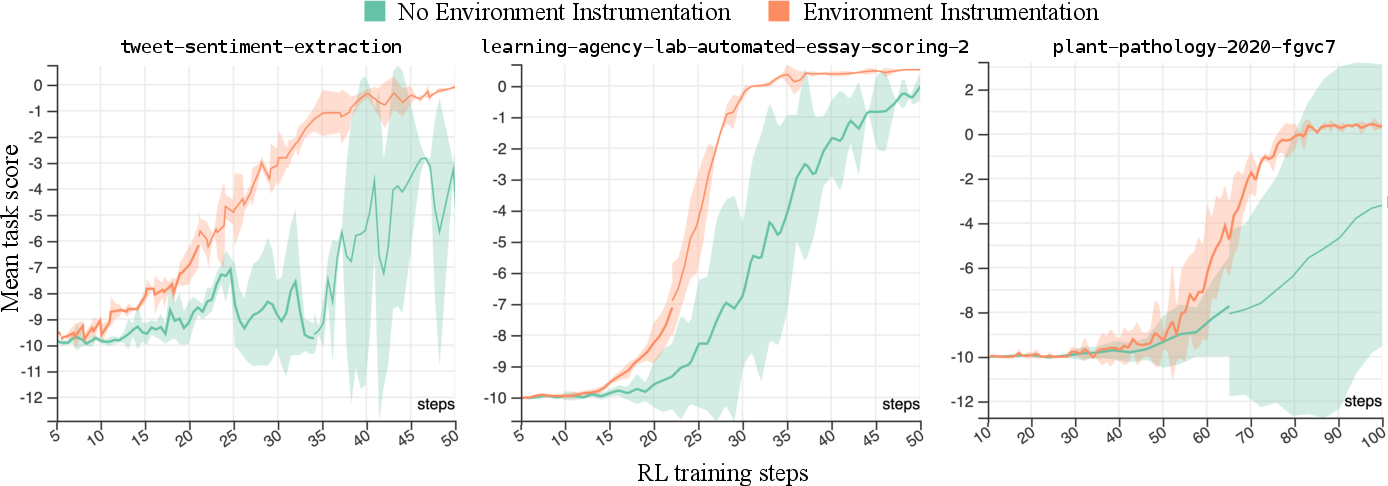Reinforcement Learning for Machine Learning Engineering Agents (2509.01684v1)
Abstract: Existing agents for solving tasks such as ML engineering rely on prompting powerful LLMs. As a result, these agents do not improve with more experience. In this paper, we show that agents backed by weaker models that improve via reinforcement learning (RL) can outperform agents backed by much larger, but static models. We identify two major challenges with RL in this setting. First, actions can take a variable amount of time (e.g., executing code for different solutions), which leads to asynchronous policy gradient updates that favor faster but suboptimal solutions. To tackle variable-duration actions, we propose duration-aware gradient updates in a distributed asynchronous RL framework to amplify high-cost but high-reward actions. Second, using only test split performance as a reward provides limited feedback. A program that is nearly correct is treated the same as one that fails entirely. To address this, we propose environment instrumentation to offer partial credit, distinguishing almost-correct programs from those that fail early (e.g., during data loading). Environment instrumentation uses a separate static LLM to insert print statement to an existing program to log the agent's experimental progress, from which partial credit can be extracted as reward signals for learning. Our experimental results on MLEBench suggest that performing gradient updates on a much smaller model (Qwen2.5-3B) trained with RL outperforms prompting a much larger model (Claude-3.5-Sonnet) with agent scaffolds, by an average of 22% across 12 Kaggle tasks.
Paper Prompts
Sign up for free to create and run prompts on this paper using GPT-5.
Top Community Prompts
Collections
Sign up for free to add this paper to one or more collections.



